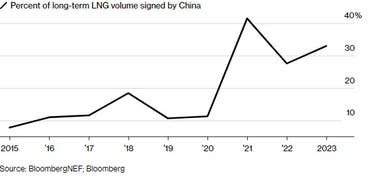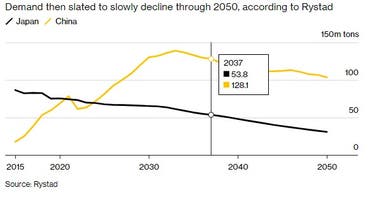
China positions Pakistan as nuclear power export springboard
MIFRAH HAQ
China is accelerating its civil nuclear cooperation with Pakistan, as it seeks export customers in a market dominated by Russia and the West.
A nuclear energy deal Pakistan signed with China in June, reportedly worth $4.8 billion, might appear a curious move on Beijing’s part. China has already had a bumpy ride in Pakistan’s power business, where coal-operated stations have suffered from a debilitating cash crunch amid the South Asian country’s foreign exchange shortage.
Yet experts say the new arrangement is more about China’s strategic ambitions than economics.
“China wants to continue to build nuclear power plants in Pakistan to build up a track record for Chinese industry to enter other, perhaps more lucrative and less-captive nuclear power markets,” said Mark Hibbs, nonresident senior fellow for the Nuclear Policy Program at the Carnegie Endowment for International Peace.
Under the deal, China will build a 1,200-megawatt plant at the Chashma nuclear power complex in central Pakistan. It will feature what Beijing says is its first indigenous civil nuclear reactor, the Hualong One, a third-generation pressurized water reactor jointly developed by the China National Nuclear Corporation and the China General Nuclear Power Group.
The new unit will be the fifth at the complex, which was built with Chinese assistance and currently feeds 1,230 MW to the national grid.
China previously supplied this type of reactor to a nuclear power station in the southern port city of Karachi. Construction of two units — which came online in the last couple of years, adding a combined 2,200 MW — roughly coincided with the setup of the first Hualong Ones in China, at Fuqing.
Including domestic projects, China has become one of the most prolific builders of nuclear plants. But beyond Pakistan, its export plans are largely aspirational, with officials having suggested that by 2030 China could build 30 overseas reactors in countries participating in its Belt and Road Initiative. Last year, China signed a deal to build a nuclear facility in another economically troubled country, Argentina.
“This project is part of our energy security plan to diversify the energy mix with a focus on ensuring the provision of cheap electricity to the industry & relief to the common man,” Pakistani Prime Minister Shahbaz Sharif tweeted on June 20 following the nuclear deal, saying the project “will be built with Chinese investment of $3.48 billion.”
The prime minister also said China provided a “discount” of $100 million despite facing delays during the tenure of the previous Pakistan Tehreek-e-Insaf government, led by ousted Prime Minister Imran Khan.
Zongyuan Zoe Liu, a fellow for international political economy at the Council on Foreign Relations, said China does not have much experience exporting nuclear power plants and that President Xi Jinping prioritized foreign reactor sales only after his 2021 pledge at the United Nations General Assembly to stop building overseas coal-fired power projects.
“In this context, it does not make practical sense for Chinese nuclear reactor exporters to charge a high markup,” she said. “What is more important for China is to demonstrate to the world that it has indigenous technology for nuclear reactors that are safe, reliable and affordable. This is, in the long run, in China’s interest to compete with other nuclear power exporters in the global markets.”
Carnegie’s Hibbs said the Hualong One “will likely become the standard light-water reactor for China’s continued nuclear power development, but also a flagship for China’s influence in the global marketplace and in multilateral governance over nuclear power.”
Chinese cooperation has been and will be instrumental in helping Pakistan overcome chronic energy woes. Beijing has helped build energy facilities, mostly coal-fired power plants and hydropower projects, under its $50 billion China-Pakistan Economic Corridor (CPEC), the Pakistani component of the Belt and Road Initiative.
But costly fuel imports, including coal for BRI power plants, coupled with rupee devaluation, have weighed heavily on Pakistan’s dollar reserves and contributed to a balance of payments crisis that forced it to strike an 11th-hour bailout deal with the International Monetary Fund on Friday.
Pakistan defaulted on dues to Chinese-operated coal plants totaling $1.5 billion. The plants have been unable to import coal, and thus many have stopped operating. New coal power projects have also been shelved, apart from a recently re-approved one in the port city of Gwadar, the centerpiece of CPEC.
Nevertheless, Hibbs explained that “China has a supply chain and workforce in place in Pakistan for Hualong One, and without new foreign contracts elsewhere, China wants to keep these assets active.”
Aside from the economic question marks, however, China’s cooperation with Pakistan also raises eyebrows among the Nuclear Suppliers Group, a voluntary organization of 48 countries that conduct civilian nuclear trade under strict guidelines. Pakistan is not a signatory to the Nuclear Non-Proliferation Treaty and conforms to only facility-specific safeguards of the International Atomic Energy Agency — as opposed to the full-scope safeguards that allow the IAEA to inspect both civil and military nuclear facilities required for nuclear trade.
China says that its ongoing exports to Pakistan are “grandfathered” by agreements dating back years before China’s entry into the NSG in 2004, although NSG members assert that exports after entry should conform to the full-scope rule.
(Source: Nikkei Asia)












